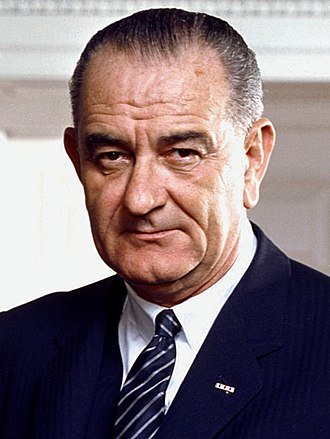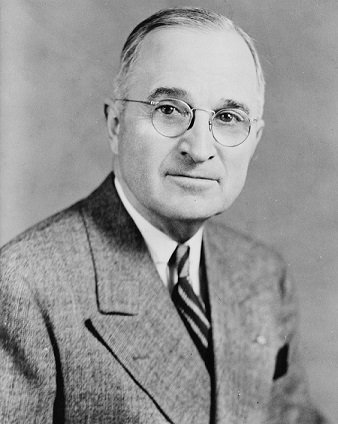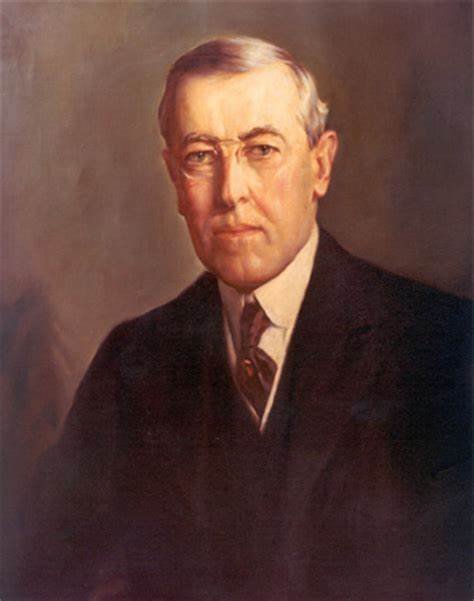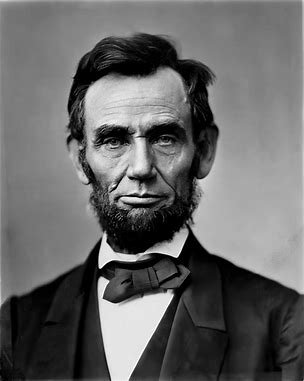Guess the President
The level of vitriol and partisanship in our politics is high. However, it is not unique. Throughout our history, Presidents have been severely criticized, including the following four:
Lyndon Johnson
Harry Truman
Woodrow Wilson
Abraham Lincoln
Below is a list of attacks made on one of these four Presidents. Can you guess which one?
Criticism Leveled at One of the Presidents:
Shortly after winning the Presidency, one newspaper stated about the President-Elect: “…he is no more capable of becoming a statesman, nay, even a moderate one, than the braying ass can become a noble lion.”
Another paper stated: “His weak, wishy-washy, namby-pamby efforts, imbecile in matter, disgusting in manner, have made us the laughing stock of the whole world.”
A Congressman complained about this President: “His speeches have fallen like a wet blanket here. They put to flight all notions of greatness."
This President was harshly criticized for one of his Executive Orders: "We have no doubt that this Proclamation seals the fate of this Union as it was and the Constitution as it is…The time is brief when we shall have a DICTATOR PROCLAIMED, for the Proclamation can never be carried out except under the iron rule of the worst kind of despotism."
In the mid-term elections, this President’s party lost its majority. Issues included inflation, taxation, corruption, and racism. Six large states that had voted for the President sent majorities to Congress from the opposition party. One report stated: "As to the politics of Washington, the most striking thing is the absence of personal loyalty to the President. It does not exist. He has no admirers, no enthusiastic supporters, none to bet on his head. If a…convention were to be held tomorrow, he would not get the vote of a State."
During his re-election campaign, the President felt he was going to lose. He wrote to his cabinet: "This morning, as for some days past, it seems exceedingly probable that this Administration will not be re-elected. Then it will be my duty to so cooperate with the President-elect…”
Any guesses yet?
Here is some additional information about each of these four Presidents:
Lyndon Johnson expanded the Vietnam War in the 1960s. As the war continued and U.S. casualties mounted, it became increasingly unpopular. The draft was controversial as it allowed college students to avoid the draft, placing the burden of the war on the working and lower classes. When protests turned violent, the National Guard was called out. Eventually, four students were killed at Kent State University in Ohio. Realizing the war’s unpopularity, and facing opposition within his party, Johnson declined to run for re-election in 1868.
Harry Truman led the nation into the Korean War in 1950. As with Vietnam, the war became increasingly unpopular as it appeared stalemated. When he lost the first 1952 primary in New Hampshire, he declined to seek another term.
Woodrow Wilson led the nation into World War I in 1917. He won re-election in 1916 with a campaign slogan of ‘he kept us out-of-war.’ However, a few months later (April 1917), he asked Congress to declare war on Germany. To suppress criticism of the war, Wilson had Congress pass the Espionage Act of 1917 and the Sedition Act of 1918. Written in a wartime environment, these acts banned criticism of the government. They stand as some of the most egregious violations of free speech. He was interested in running for a third term in 1920 - this was before Presidents were limited to two terms. However, he was unpopular after the war ended due to high inflation and his mishandling of the post-war treaties. The Democratic party declined to re-nominate him.
Abraham Lincoln led the nation into the Civil War in 1861. The draft system he instituted was very unpopular and perceived as favoring the well-off. Draft riots required military intervention. As the 1864 election approached, the war was increasingly unpopular. Casualties continued to mount, and military progress appeared to be stalled.
Again, the choices again for this severely criticized President:
Lyndon Johnson
Harry Truman
Woodrow Wilson
Abraham Lincoln
The answer: Abraham Lincoln. He was venomously criticized throughout his Presidency. The quotations at the start of this article were all leveled against Lincoln.
Here is some additional information about Lincoln:
Draft Riots
1863 Civil War Riots
The North instituted the first military draft in American history during the Civil War in 1863. The draft was hugely unpopular, and many believed the system favored the rich at the expense of the poor. Those subject to the draft resented that wealthier men could buy a ‘substitute’ for $300, a lot of money in those days. There were protests and riots. Troops were called out, and they shot into the crowd killing several people. This was not Kent State University, 1970, the Vietnam War. Instead, it was 1863, and New York City experienced the worst draft riots in American history. The riots lasted several days, requiring the United States to dispatch forces from Gettysburg to New York City to restore order. Over 100 people died, and many buildings burned. While soldiers were responsible for some of the deaths, many of them resulted immigrant violence against African-Americans.
Lincoln as Orator
The most esteemed orator in America, Edward Everett, wrote of Lincoln: “[his] speeches thus far have been of the most ordinary kind, destitute of everything, not merely of felicity and grace, but of common pertinence. He is evidently a person of very inferior cast of character, wholly unequal to the crisis.” After a significant Civil War battle, Everett was invited to provide an appropriate memorial speech. He spoke for two hours without notes, over 10,000 words. The talk was a tour-de-force of military and political history. Lincoln followed with his 272 word Gettysburg Address. The next day Everett wrote to Lincoln, “I should be glad, if I could flatter myself, that I came as near to the central idea of the occasion in two hours, as you did in two minutes.”
Lincoln’s 1864 Re-Election
Lincoln differed with his Republican party over Reconstruction of the South. Lincoln favored a lenient policy for the South. He issued a proclamation allowing Southern States to rejoin the Union once 10% of their voters had sworn allegiance to the U.S. and agreed to abide by Emancipation. Republicans felt this policy was too soft and passed the Wade-Davis bill in 1864 requiring a 50% loyalty oath and other provisions. Lincoln vetoed the bill. Enraged Republicans criticized their Presidential nominee for "grave Executive usurpation" and "a studied outrage on the legislative authority."
1864 Campaign Poster Opposing Lincoln
Lincoln felt he was going to lose the 1864 election. The war seemed stalemated. Grant’s army sustained sizable casualties in the Spring campaign of 1864. Over six weeks, including the battles of the Wilderness, Spotsylvania, and Cold Harbor, Grant incurred over 50,000 dead and wounded. His army stalled outside of Richmond and Petersburg. In July 1864, a Confederate army raided Washington D.C., getting within a few miles of the capital, furthering the feeling that the war had a long duration left. In August 1864 Lincoln wrote a letter to his cabinet: "This morning, as for some days past, it seems exceedingly probable that this Administration will not be re-elected. Then it will be my duty to so cooperate with the ,President-elect, as to save the Union between the Election and the inauguration; as he will have secured his election on such ground that he cannot possibly save it afterwards."
In late August 1864, the Democrats nominated General McClellan on a party platform stating that the War was a failure, peace now. A few days later, General Sherman’s Union forces captured Atlanta. His six-word telegram "Atlanta is ours and fairly won" changed the political picture. Lincoln went on to re-election that November. Although he won easily in the Electoral College, Lincoln’s popular vote margin was surprisingly narrow in some States, in some cases a worse showing than in 1860.
Conclusion
Today’s political histrionics are not unique. Many other Presidents have faced strong criticism. Abraham Lincoln, severely criticized while alive, is now one of our most revered Presidents. As writer Finley Peter Dunne’s character, Mr. Dooley, an Irishman who pontificated on the day’s issues from a Chicago pub, stated: “politics ain’t bean-bag.” Safe to say, as valid today as it was back in Lincoln’s day. Or, as President Truman is reputed to have said, “If you want a friend in Washington, get a dog.”






